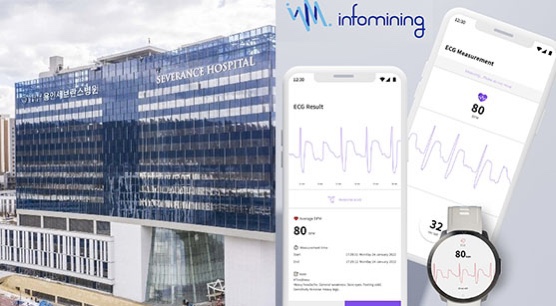
Currently, large companies Skc&c and AIA Life Insurance are developing joint healthcare solutions with mou. It’s been announced.
AIA Life Insurance is developing an artificial intelligence-based health care platform. To this end, it will join hands with SK C&C, a leading IT solution company in Korea.
AIA Life Insurance’s Korean branch (CEO: Cha Tae-jin, hereinafter “AIA Life”) signed a memorandum of understanding with SK C&C (CEO: Park Jung-ho) at SK Group’s headquarters in Seorin-dong, Jongno-gu. It announced that it has decided to jointly develop a customer-centered digital integrated health care platform using AIA Vitality, a global health care program, and SK C&C’s artificial intelligence Aibril.
Through this MOU, the two companies plan to build customized health care services by combining “AIA Vitality,” the first scientific health care program in the Asia-Pacific region, and “Aibril,” an artificial intelligence using Watson of SK C&C. The plan is to reduce the risk of major diseases caused by smoking, drinking, poor eating habits, and lack of exercise by allowing customers to have healthy lifestyles on their own.
“AIA Vitality” is AIA Life Insurance’s scientific health care program that presents knowledge and methods for members to protect their health on their own. Using the principles of behavioral economics, members pursue healthy habits and provide various benefits such as discount coupons such as fitness centers, yoga centers, health foods, plane tickets, and coffee when they achieve their given goals. Through this, members can continue to make efforts for their own health care.
SK Co., Ltd. C&C plans to increase the service level of “AIA Vitality” as a customized health management service that considers individual physical characteristics, lifestyle, and living environment by utilizing IoT technology capabilities such as ▲ Watson-based artificial intelligence “Abril” ▲ various wearable devices.
The two companies plan to prepare various reward programs in the future and make it easier for domestic healthcare companies to participate in providing health care services through an “integrated digital health management platform.”
And it seems that artificial intelligence robots, especially seniors, have conversations or provide non-face-to-face emergency notification services.
Wonderful Platform, a developer, taught robots how to care for the elderly, living environment, and medical knowledge through artificial intelligence and applied related manuals.
It has added a speechless function to soothe the elderly’s sense of isolation and is equipped with various activity functions to prevent dementia.
“In an emergency, if you touch this emergency button or shout for help, an emergency notification will be sent to your guardian.”
With the development of such a care robot, the Wonderful Platform participated in the non-face-to-face welfare sector during the government’s Korean version of the New Deal project last year and received support such as upgrading services, and was selected as the best case of the Korean version of the New Deal this month.
Currently, care services are provided to 2,600 elderly people through local governments and health centers nationwide.
As the demand for non-face-to-face care services increases amid the COVID-19 situation, the service targets will be further expanded not only to the elderly but also to children with developmental disabilities.
There seems to be a lot of regrets. It seems to be a simple companion, an emergency notification, and knowledge information sharing. It is just an object called a robot, and it seems not enough to be called artificial intelligence. It feels like a non-face-to-face caregiver robot.
If so, attention is already paid to the Korea University Hospital (Yonsei Foundation Severance, Korea University Hospital, Yeungnam University Hospital, Pusan National University Hospital, etc.), institutions (Disease Headquarters, Ministry of Health and Welfare, Foreign Affairs), and the Airport Management Corporation. Japan’s Omron, Softbank, DataScope, Fujisoft, Toyota (Elematec Corporation), and Matsui Corporation have been conducting artificial intelligence tests in Spain for more than a year, combining basic diagnoses such as blood pressure, blood sugar, electrocardiogram, and oxygen saturation with general devices (wearable watches) and their servers. Although it is a small and medium-sized company, I think it is the best existing company that combines medical care with more than 20 professional software hardware developers. Tele-doc, a U.S. NASDAQ-listed company, also sent a LOI and is set to enter the U.S.

▲ INFOMINING CO., LTD
▲ CEO : Jae-yong Lee
▲ http://infomining.co.kr
▲ worldconsult@infomining.co.kr
▲ +82-70-4914-2970
Sam Kim
Asia Journal

